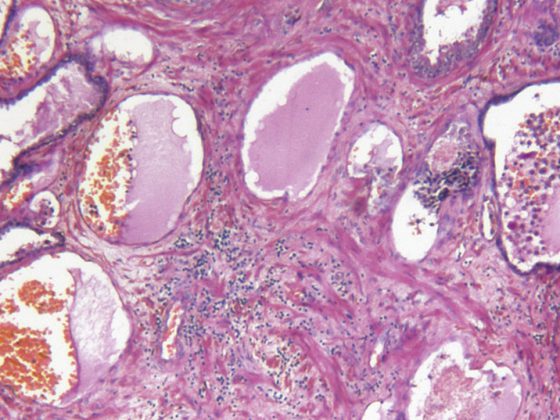The primary public health goal of WHO is the prevention of atherosclerotic cardiovascular disease. However, a large proportion of patients at high or very high cardiovascular risk do not achieve the recommended LDL cholesterol target levels. Now, patients can benefit from a consistent reduction of up to 52% with just two injections of Inclisiran annually.
Every year, more than 20,000 people die in Switzerland due to a cardiovascular cause. This means that cardiovascular diseases have been the leading cause of death for years. The prevention of atherosclerotic cardiovascular disease, which has been declared the primary public health goal by the WHO, therefore still offers many points of attack for optimization. According to an observational study, the target values recommended in the ESC/EAS guidelines are not achieved in more than 80% of the cases of patients with a very high or high cardiovascular risk. This is due in part to a lack of drug adherence as well as the absence of effective combination therapies for LDL cholesterol (LDL-C) lowering. Inclisiran (Leqvio®) now offers an effective and adherence-promoting new treatment option. Small interfering RNA (siRNA) is approved for the treatment of adults with hypercholesterolemia, including heterozygous familial hypercholesterolemia, or mixed dyslipidemia, concomitant with diet and in addition to statin therapy and/or other lipid-lowering therapies, and for patients with statin intolerance. Just two injections annually can result in consistent LDL-C reductions of up to 52%.
The largest proportion of cardiovascular disease is atherosclerotic. Myocardial infarctions, strokes, or peripheral arterial disease can be attributed to it. The best-studied risk factor to date for both disease development and progression is LDL cholesterol. The higher the LDL-C level and the longer the exposure to the elevated levels, the faster the progression of atherosclerosis and the higher the risk of cardiovascular events. The current ESC/EAS guideline always recommends LDL-C reduction by at least 50% of baseline for patients at high and very high risk, regardless of the individual LDL-C target. For high risk, the individual target value is <1.8 mmol/l (70 mg/dl), and for very high risk, <1.4 mmol/l (55 mg/dl). However, very few patients achieve these values.
High medical and economic demand
“As you can see, the medical need in hypercholesterolemia is huge,” acknowledged Corinne Wild, chief scientific officer at Novartis. “Moreover, in addition to the medical need, one must not disregard the economic aspect. This is because cardiovascular diseases also cause the highest costs for the healthcare system in Switzerland. Annually, approximately 112,000 hospital admissions are due to cardiovascular disease, costing approximately CHF 10 billion.”
The approval of Inclisiran is based on the comprehensive ORION clinical trial program. Three phase III trials evaluated efficacy, safety, and tolerability in patients with heterozygous familial hypercholesterolemia (HeFH), atherosclerotic cardiovascular disease (ASCVD), or ASCVD-equivalent risk who did not achieve recommended LDL-C levels despite maximally tolerated lipid-lowering therapy (e.g., statin and/or ezetimibe). Pooled results showed that LDL-C was reduced by up to 52% compared with placebo. The maximum reduction was achieved as early as 90 days after the start of therapy and was maintained over the entire study period of 18 months. The siRNA was found to be well tolerated with a safety profile comparable to placebo. “The studies have demonstrated a very significant improvement in LDL-C levels for inclisiran. This can help reduce the risk of heart attacks, strokes and ultimately cardiovascular death,” said Corinne Wild, summing up the advantages of the new therapeutic option.
Source: “Novartis receives Swissmedic approval for LEQVIO® (Inclisiran) for the treatment of hypercholesterolemia,” Sept. 13, 2021, Novartis Pharma AG Switzerland.
CARDIOVASC 2021; 20(4): 33











